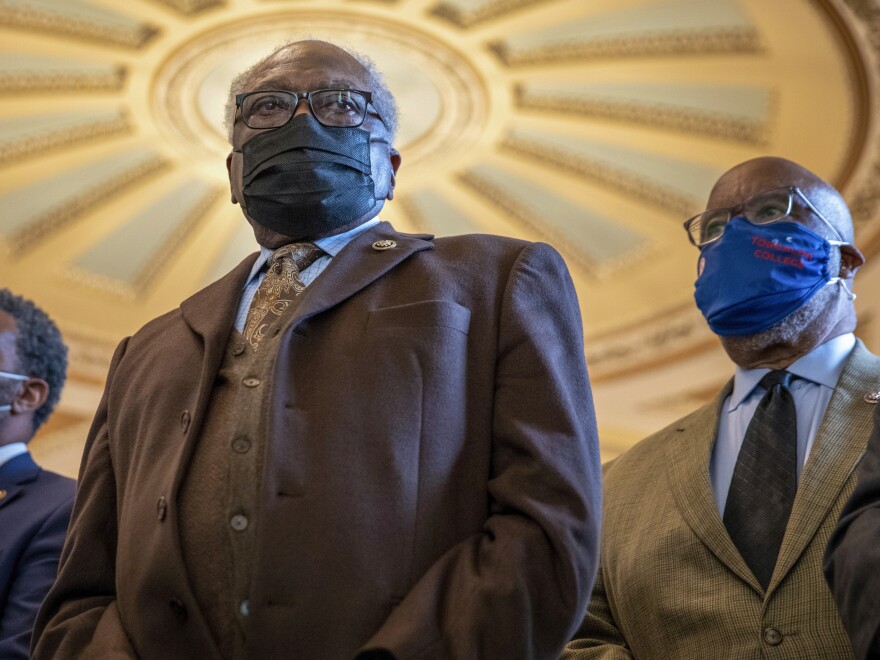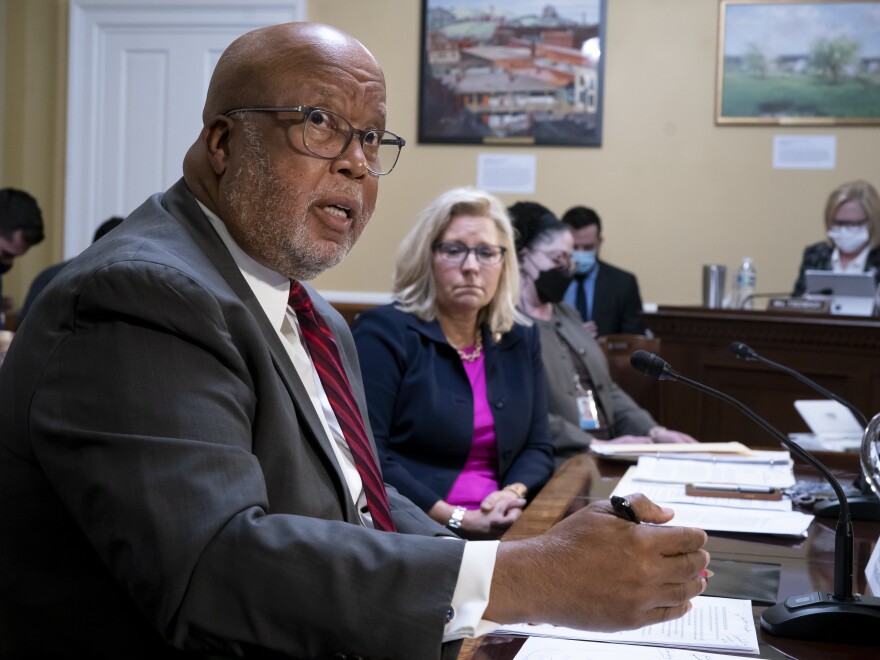Mississippi Democratic Rep. Bennie Thompson is facing one of the most high-profile moments in a political career spanning more than 50 years — leading this month's hearings intended to show Americans what fueled the violence of the Jan. 6, 2021, attack on the Capitol.
Some who tune in to Thursday's prime-time hearing will encounter for the first time the chairman, a political leader from rural Mississippi with deep roots in civil rights activism.
"I'm a passionate believer that, in a democracy you have to follow the rule of law," Thompson told NPR. "It has nothing to do with individuals, it has nothing to do with wealth. It has nothing to do with status in the community. It's the law. The law is colorblind."
That personal history, said Majority Whip Jim Clyburn, made Thompson the perfect fit to chair the select committee investigating the insurrection.
"We have so many people over here who are much more interested in the headline than they are in making headway," Clyburn recently told NPR. "Bennie is not interested in making the headlines."
While Thompson's work as a small town leader taught him how to listen, a skill critical for getting to the bottom of the insurrection, Clyburn said the most important quality he brings to his role leading the committee is his search for a more perfect union.
"Here he is, growing up, under the imperfections of this country — being affected adversely by this country's imperfections. Yet he is one being looked to now to do what is necessary to preserve it," Clyburn said.
From segregation to rising through the ranks to Congress
The Mississippi town where Thompson grew up, Bolton, had a whites-only pool and park. As a teen, he traveled 51 miles past two schools for whites to attend one for Black students.
"I never saw my hometown of Bolton when I was in high school during the day, because I caught the bus at night. It was so early in the morning, I got back so late, it was dark," he told a national civil rights symposium in 1989 as he was fighting for equal access for Black people in education and at the ballot box.
By then, Thompson had defied racial barriers to become an alderman in that same town, followed by roles as a mayor and then county supervisor.
In 1993, he won a special election to represent his majority African American district in Congress, which is anchored by the state capital in Jackson. Three years ago, he became chairman of the House Homeland Security Committee.
"It's kind of interesting that somebody like Bennie Thompson, with the experiences he had growing up in Mississippi, would be the one that was out there trying to keep this democracy on track," said Clyburn, a South Carolina Democrat who is a bit of a kindred spirit and is often seen having extended conversations with him during hours-long floor votes.

When House Democrats moved last year to create the select committee to investigate how the deadly siege on the Capitol originated and transpired, Clyburn saw Thompson as a perfect fit to lead it. He made the case to Speaker Nancy Pelosi that Thompson's civil rights work and unflappable nature positioned him to face off against powerful opponents, including former President Donald Trump and a vast share of the Republican Party.
Pelosi appeared to agree, selecting him as chairman after the panel was created.
"Chairman Thompson is the chair of one of the committees of jurisdiction, Homeland Security, and this was an assault on our homeland security and he commands a great deal of respect in our caucus and I'm very proud of what he is doing," Pelosi told NPR.

Managing the committee fairly while learning the truth
Now, Thompson is readying his committee of seven Democrats and two Republicans for hearings starting Thursday. The hearings draw from interviews with more than 1,000 witnesses and more than 100,000 pieces of evidence.
The committee's makeup has brought about new connections with Republicans for the lifelong Democrat.
The committee's vice chair, Wyoming Republican Liz Cheney, said she did not really know him before the committee was formed a year ago.
She's been watching how he manages the committee and the issues and she's been "really impressed with him," particularly as Thompson steers clear of partisan arguments and debate that could slow down the committee's work, Cheney said.
"He's very focused always on the substance and on the facts," she said.

Thompson says he's calling it as he sees it on the investigation into the Jan. 6 attack that was intended to keep Congress from certifying the 2020 presidential election results. And he says he's gained a new education about the danger the country faced that day, which he aims to share through the hearings.
For Thompson, preserving democracy today means telling the full story of the attack on the Capitol and ensuring its moment in history is one that Americans never forget.
"I have learned a lot about how perilously close we came on January 6 to losing this democracy as a lot of us have come to know and love it."
Copyright 2022 NPR. To see more, visit https://www.npr.org.




